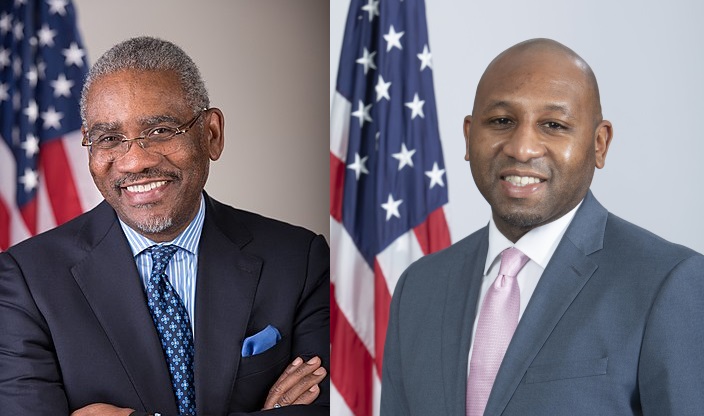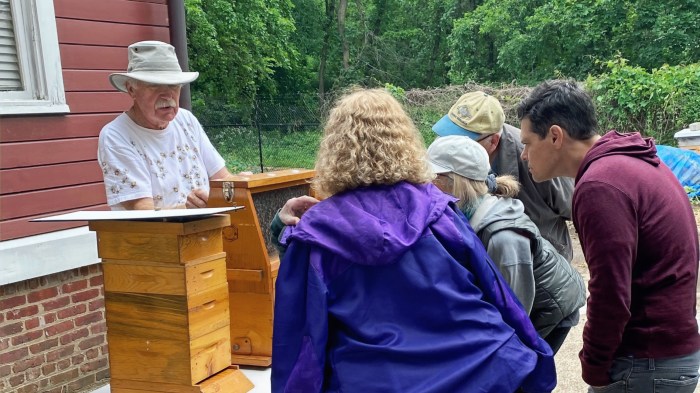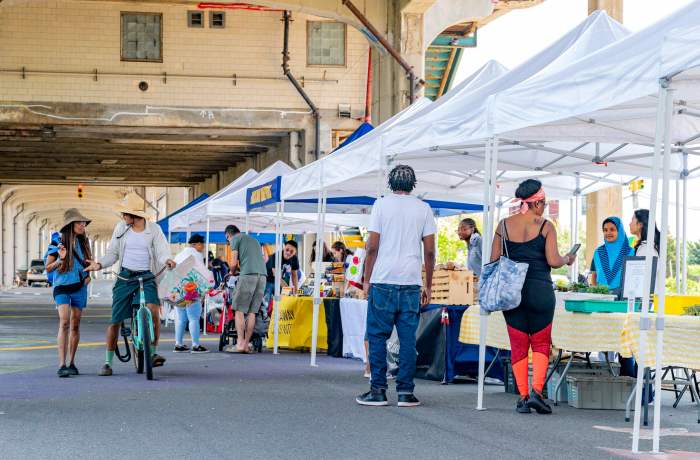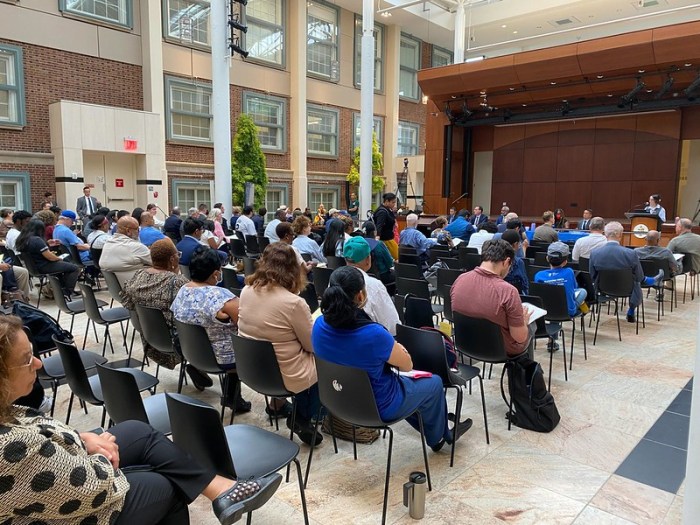As lifelong residents of Queens, we are proud that our borough – home to JFK International Airport – has for more than 75 years served as the nation’s front-door to the world. But for too many of those years, we have often felt more like the doormat than the doorway.
For these many decades, JFK’s neighbors have endured aircraft noise above our homes and ever-growing congestion on our streets, without enjoying an equitable share of the benefits generated by an international gateway – namely jobs and community investment.
Now, with the $19 billion redevelopment of JFK fully underway, we are pleased to say that the benefits of this historic project will finally land on the doorsteps of those who have borne the burden of hosting an airport. Thanks to the JFK Redevelopment Community Advisory Council, which we co-chair, the community surrounding the airport is no longer a bystander, but a stakeholder in the project.
Since October 2018, when the Community Advisory Council was organized by the Port Authority of New York and New Jersey, we have worked hand in glove with the Port Authority and the private terminal developers to ensure that our once under-served communities receive their fair share of economic opportunities.
Comprised of local elected officials, community boards, clergy, civic and business leaders, the Community Advisory Council identified areas of opportunity to leverage the historic investment being made at the airport to benefit businesses and residents from neighborhoods closest to JFK and to minimize the impact of construction on our communities.
These are no longer just goals. As we work with our partners at the airport, we can report tangible achievements:
- To date, more than 400 MWBE businesses have been awarded nearly $2 billion in contracts at JFK, and nearly $800 million in awards to Queens-based businesses. With work at the airport continuing through 2028, we expect these numbers to increase.
- In collaboration with York College, the Port Authority and the terminal developers launched the Aviation and Aeronautics Academy that will provide STEM programming to more than 2,500 students from grades 1 through 12 over four years. The first 300 students attended last fall.
- Our effort to match job seekers in the local community with jobs resulted in the placement of more than 1,000 people in construction jobs at the airport and more than 1,100 people in operations jobs at the airport, including nearly 600 Queens residents.
- A second chance employment program found jobs for people who have been through the criminal justice system. In 2023, more than 60 people were hired, which is critical to reducing the recidivism rate.
- A few months ago, we graduated the first class of local business owners from the Institute of Concessions, which is preparing them to compete for opportunities to open restaurants and retail shops in the new terminals.
- We called for strategies to limit the impact of construction on our communities, resulting in the Port Authority’s construction support facility that will eliminate more than 300,000 truck trips on local streets.
As co-chairs of the JFK Redevelopment Community Advisory Council, we’ve been insistent that our communities can’t be left out of a nearly $20 billion project. This is about ensuring that the communities that have historically been left out of the conversation now are at the table.
We’ve talked about a community-led vision throughout this project, and we are seeing those conversations bear fruit to create a new world-class airport that will be good for both our region and for our communities. We encourage all our constituents and neighbors to get more engaged and continue participating in this community-based development. Moving forward, we believe that the Community Advisory Council will serve as a model for how a community-involved project that prioritizes local and regional economic growth can be replicated across the country.

































